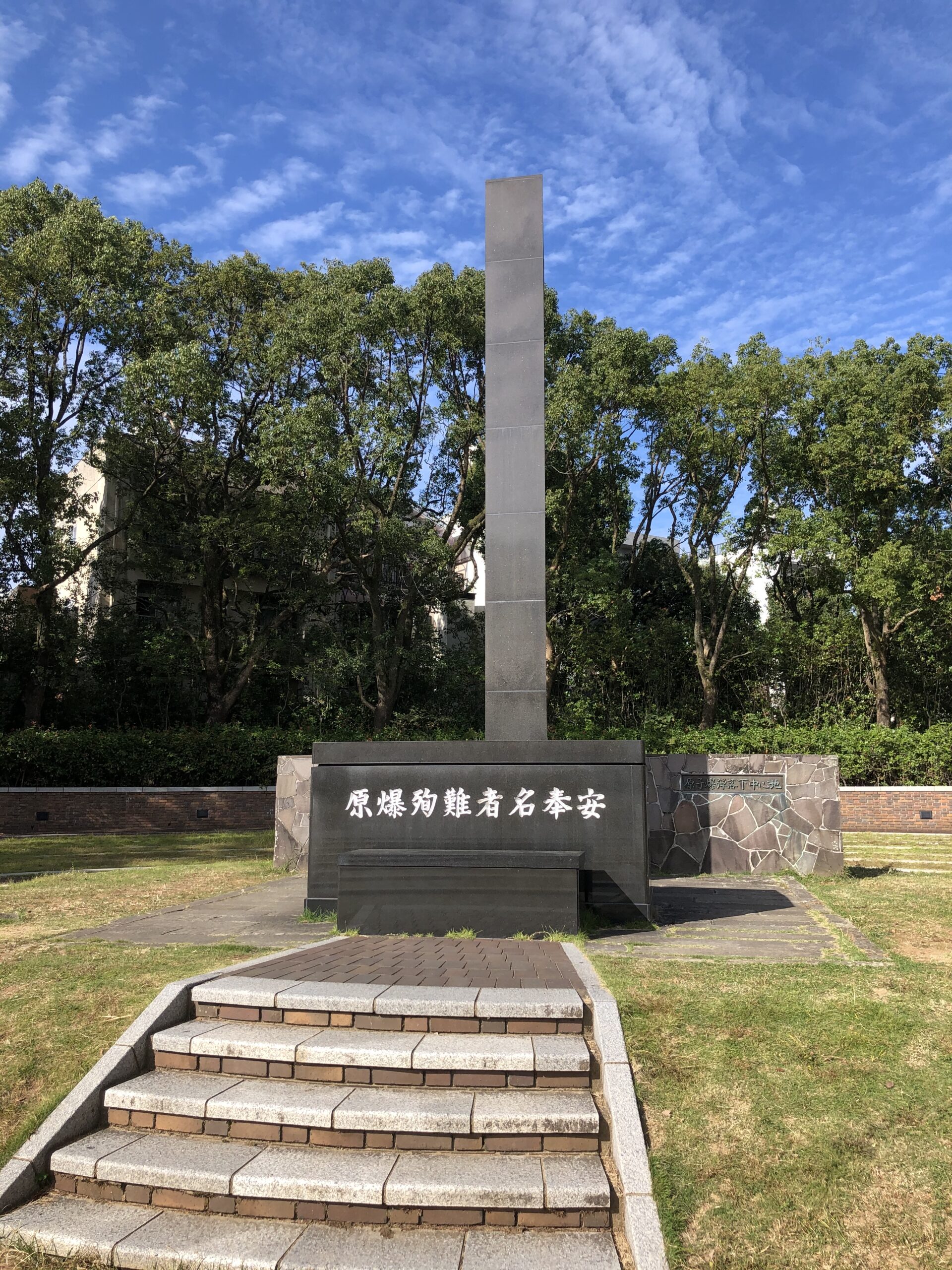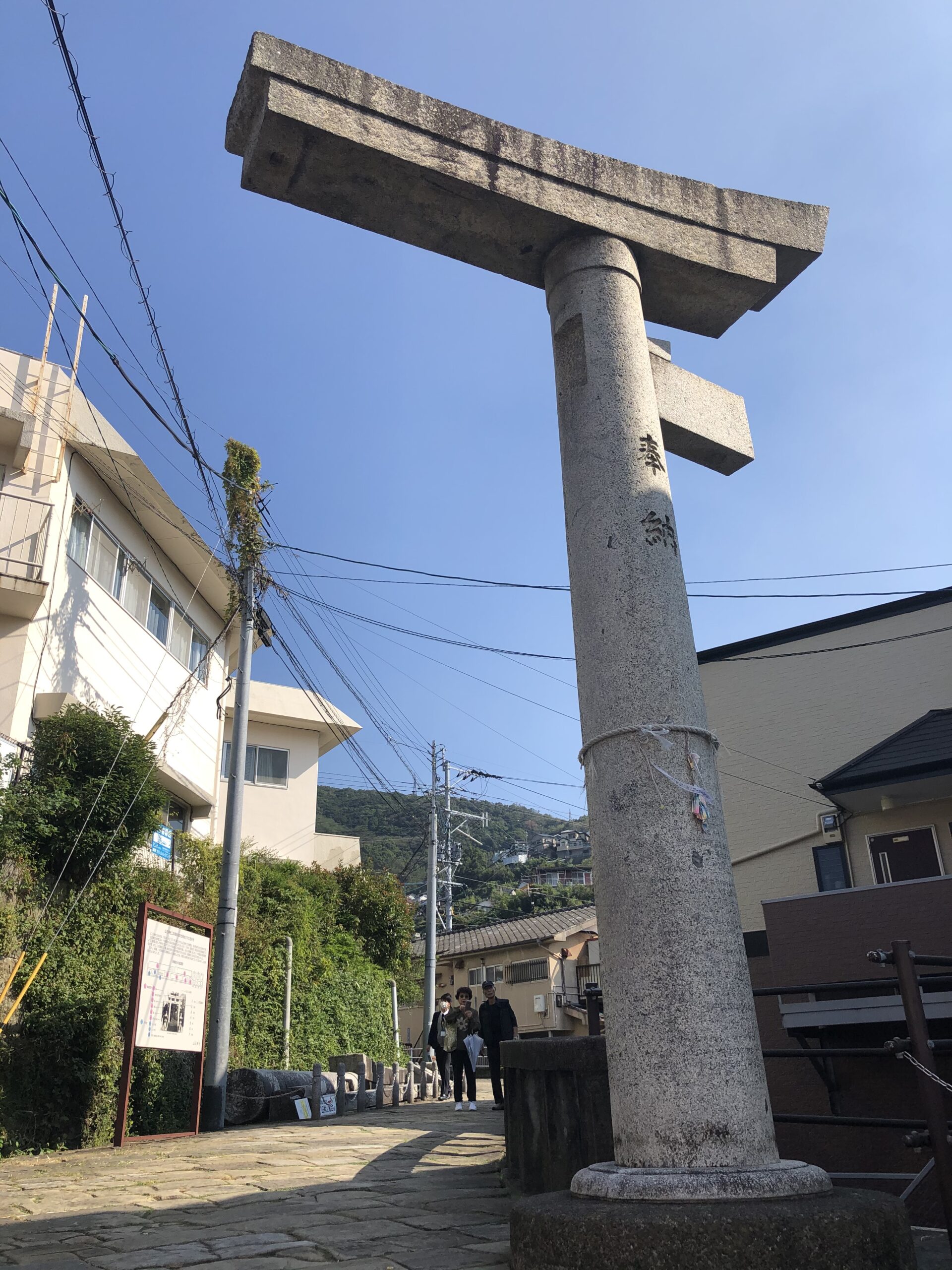
Featured Image: Peace Park, Nagasaki
By Mao Shiotsu
At the atomic bomb Peace Park in Nagasaki stands a black pillar marking the exact spot where the “Fat man,” the plump-shaped plutonium bomb, was dropped. The quiet, picturesque blue sky that stretched over me that afternoon felt sardonic, revealing nothing of what it saw 75 years ago: a bomb that unleashed radiation and temperatures of over 7000 degrees Fahrenheit throughout the city, instantly murdering 70,000 civilians out of a population of 240,000, and severely injuring another 70,000.
In America, the debate rages on: was the use of the two atomic bombs justified? According to a 2015 survey, around half of surveyed Americans thought it was. The common claim is that the bombs forced Japan to surrender, preventing any more troops from getting killed. The other side argues, however, that this was an inhumane atrocity. With the USSR’s entry in the war in early August, both US and Japanese officials knew the only possible outcome for Japan was to surrender, and therefore there is no justification for using nuclear weapons against the innocent civilians of not only one, but two cities. In fact, Truman’s Chief of Staff, William Daniel Leahy wrote in his memoir that “the use of this barbarous weapon at Hiroshima and Nagasaki was of no material assistance in our war against Japan.”
The debate surrounding this topic has been extensive, and of course I have my own opinions as a Japanese national, but the point of this article is not to argue for either side. Not only is it difficult to present a thorough, multidimensional evaluation, it seems near-impossible to provide a judgment that everybody will agree on. Personal philosophy and speculation cannot be wrenched apart from rational logic in this debate.
Yet how we judge history is crucial, because it has implications for the world today. Since 1945, the victims of the atomic bombs have repeatedly shared their stories through NGOs, in governments, and in the UN. They have continuously advocated for the importance of abolishing nuclear weapons, to never allow the tragedies of Hiroshima and Nagasaki to happen anywhere again.

We have seen some progress for nuclear disarmament efforts. In 1968, the UN Non-Proliferation Treaty (NPT) was signed to reduce, and eventually abolish nuclear weapons in the world. The treaty mandated the reduction of nuclear arsenals of the five states that already possessed them -US, Russia, UK, China, and France- and prohibited the production of nuclear weapons in all other states. As of today, 191 countries have ratified the treaty.
Recently, on October 24 this year, the Treaty on the Prohibition of Nuclear Weapons (TPNW) was signed, having finally reached the 50 necessary ratifications. The treaty, which is a stricter version of NPT, effectively bans the possession and creation of all nuclear weapons, and is to enter into force in January 2021. But crucially, the five states possessing nuclear weapons are not part of the 50 that ratified. Their governments claim that abolishing their nuclear arsenal is unrealistic and a threat to national security, as North Korea, Iran, Pakistan, and India, countries that are not part of NPT, continue to expand their nuclear possessions. Japan, interestingly, has not ratified TPNW either, stating that without the involvement of the five states, the treaty is not meaningful.

Today, the US possesses 5,800 nuclear weapons. Russia has 6375, and the UK, 215. Pakistan has 160, and North Korea is estimated to have 30 to 40. Although the US and UK have reduced their nuclear stockpiles since 1968, they have continued to modernize and upgrade them. The US has run over 1000 nuclear tests since 1945, and is estimated to funnel more than $1 trillion into upgrading its nuclear arsenal by 2040.
In today’s geopolitical climate of mutual distrust, it’s impossible not to question whether a nuclear-free world is a realistic goal. Since 1945, and especially since the Cold War, nuclear weapons have become viewed by states as a security measure. As long as that interpretation of the barbarous weapon holds, it would probably be very difficult to persuade countries to disarm. And maybe this interpretation is fueled by the argument that Nagasaki and Hiroshima were justified- that the only two previous uses of nuclear weapons were for national security. To achieve the victims’ hopes for a nuclear-free future, then, perhaps the atomic bomb debate should consider not only the facts of history, but also, the implications of that judgment for the future.
Mao Shiotsu is a rising sophomore in Jonathan Edwards College. You can contact her at mao.shiotsu@yale.edu.